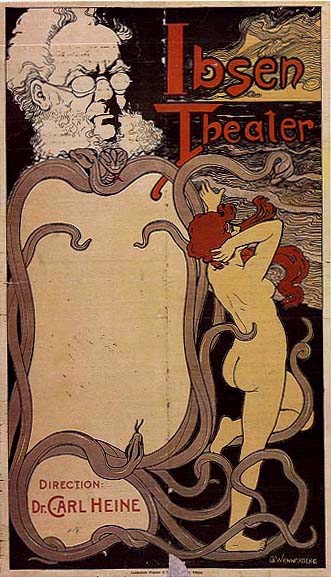A few days ago, our friends from Shaw Chicago posted a nice Shaw quotation along with a picture of Mary Michell, of whom I have a most pleasant recollection playing Mrs. Whitefield in last year's production of Man and Superman.
The quotation, as some of you may already know, is from Shaw's famous essay The Quintessence of Ibsenism. The problem, as usual, with Shaw's words, is that they are often quoted out of context - a circumstance that allows for virtually infinite interpretations. In this case, for instance, the example of the liar is more of a secondary statement within a broader parallelism than Shaw's main point. Let me explain.
The Quintessence of Ibsenism, among other things, is Shaw's way of championing Ibsen as an innovator in drama - a pioneer, if you will. Thus, Shaw fittingly initiates his discussion by exemplifying the two basic types of "Pioneers" one can find in life, namely:
- The second [pioneer], whose eyes are in the back of his head, is the man who declares that it is wrong to do something that no one has hitherto seen any harm in.
- "The first [pioneer], whose eyes are very longsighted and in the usual place, is the man who declares that it is right to do something hitherto regarded as infamous."

Of
course, Shaw argues, "the second is treated with great respect by the
army. They give him testimonials; name him the Good Man; and hate him like the devil" while the first pioneer "is stoned and shrieked at by
the whole army. They call him all manner of
opprobrious names; grudge him his bare bread and water; and secretly adore him as their savior from utter despair."
In view of this, Shaw suggests that these things happen because society has a guilty conscience. Thus, it is a lot easier to move it to see evil in something innocuous than to see good in something that has always been regarded as taboo. In Shaw's own words:
"Just as the liar’s punishment is, not in
the least that he is not believed, but that he cannot believe any one else; so
a guilty society can more easily be persuaded that any apparently innocent act
is guilty than that any apparently guilty act is innocent."


No comments:
Post a Comment